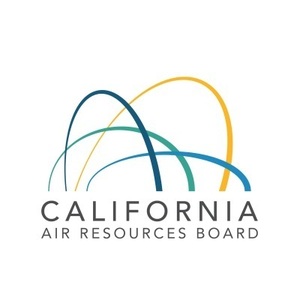CARB: Clean fuels replace 50% of California diesel fuel

August 25, 2023
BY California Air Resources Board
California hit an important milestone in its shift away from polluting fuel sources, with clean fuels replacing over 50 percent of the diesel used in the state in the first quarter of 2023.
California’s Low Carbon Fuel Standard, which requires fuel producers to reduce the carbon intensity of fuel sold in the state, is largely responsible for the shift by encouraging the use and production of cleaner alternatives.
“As technological advances put a zero-emissions future within reach, the use of cleaner fuels offers an essential tool to reduce pollution now,” said California Air Resources Board Executive Officer Steven Cliff. “A 50 percent reduction in diesel means cleaner air, healthier communities and a commitment to reaching carbon neutrality in California by 2045.”
Advertisement
Carbon intensity for the LCFS program is measured through lifecycle analysis of a fuel which includes all steps from extraction, transport, and production. The LCFS is one of several programs developed under AB 32 (the 2006 Global Warming Solutions Act) to cut California’s emissions of climate warming greenhouse gas. Other programs include Cap-and-Trade, which establishes a declining limit to emissions allowed in the state by requiring industry to pay for pollution produced. Newer regulations such as Advanced Clean Trucks and Advanced Clean Fleets put in place a phased-in transition to sell and implement clean truck technology in California, in line with Governor Gavin Newsom’s Executive Order calling for all heavy duty vehicles traveling in the state to be zero emissions by 2045. In July, CARB announced the Clean Truck Partnership with the nation’s leading truck manufacturers, including the Engine and Truck Manufacturers Association and its member companies, and Ford Motor Company, that advances the development of zero-emissions truck technology, adding further momentum to the shift to cleaner transportation fuels.
The LCFS program helped to replace nearly two billion gallons of regular diesel fuel in 2022 with a combination of cleaner fuels, including renewable diesel, biodiesel, electricity, and hydrogen. Since compliance began, the program has helped to replace more than 8.6 billion gallons of diesel.
The LCFS has drawn investment, business and jobs and has helped to make California a leader in innovative clean fuels development and production. Clean fuels are critical to reducing climate warming pollutants and to power the clean vehicles quickly coming to market.
Advertisement
Background
Compliance with the LCFS began in 2011. The program is designed to lower the carbon intensity in fuels by assessing each step in their production, from extraction to combustion. Fuels are compared to an annually declining baseline. If a fuel has a carbon intensity above that baseline it generates a deficit for the producer. If the intensity is below the baseline it can generate credits which may then be sold to a producer who has a deficit.
Related Stories
NREL announced the findings of the Assessment of BQ-9000 Biodiesel Properties for 2024, the eighth in a series of annual reports documenting the quality of biodiesel from U.S. and Canadian producers participating in the BQ-9000 program.
Kintetsu World Express Inc. has entered into a new agreement with Shell Aviation regarding the use of SAF. Under this agreement, KWE will adopt Shell Aviation's digital platform "Avelia" to swiftly address shippers' low-carbon transportation needs.
Aemetis Inc. released Q2 results, reporting increase revenue when compared to Q1. During an earnings call, company officials detailed progress with the company’s RNG, ethanol, biodiesel, SAF and carbon CCS projects.
Calumet Inc. on Aug. 8 confirmed its Montana Renewables biorefinery is currently running at full capacity. An initial phase of the company’s MaxSAF initiative remains on track to boost SAF capacity to up to 150 MMgy by mid-2026.
Marathon Petroleum Corp. on Aug. 5 released second quarter financial results, reporting improved EBITDA for its renewable diesel segment. The company primarily attributed the improvement to increased utilization and higher margins.
Upcoming Events










